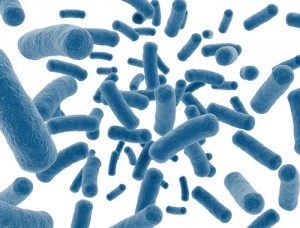 Researchers from the Johns Hopkins Kimmel Cancer Center have found that an attenuated version of Clostridium novyi (C. novyi-NT) bacterium can work as a cancer adjuvant therapy by creating an anti-tumor response in rats, dogs and humans.
Researchers from the Johns Hopkins Kimmel Cancer Center have found that an attenuated version of Clostridium novyi (C. novyi-NT) bacterium can work as a cancer adjuvant therapy by creating an anti-tumor response in rats, dogs and humans.
C. novyi is found in soil, and it naturally thrives in oxygen-poor environments, making it a perfect candidate to lyse tumor cells, which grow surrounded by an hypoxic microenvironment.
In the study entitled “Intratumoral injection of Clostridium novyi-NT spores induces antitumor responses” and published in Science Translational Medicine, researchers injected genetically modified spores of C. novyi intratumorally in companion dogs that suffered from spontaneous solid tumors.
Canine tumors are similar to those of humans due to the heterogeneous genetic background of the host and because they are spontaneous rather than engineered mutations, as is the case with the majority of laboratory mice tumors.
Of a total of 16 dogs, 6 had an anti-tumor response 21 days after their first treatment, 3 showing total clearance of their tumors and the other 3 demonstrating tumor shrinkage by at least 30%.
The majority of the dogs had side effects typical of bacterial infections, like fever, tumor abcesses and inflammation.
The encouraging results in these animals led researchers to treat a human patient who had an advanced leiomyosarcoma, a malignant smooth muscle tumor.
The Phase I clinical trial was conducted at MD Anderson Cancer Center, Texas, with intratumoral injection of C. novyi-NT spores resulting in a reduction of the tumor within and surrounding the bone.
“She had a very vigorous inflammatory response and abscess formation. But at the moment, we haven’t treated enough people to be sure if the spectrum of responses that we see in dogs will truly recapitulate what we see in people,” Nicholas Roberts, Vet.M.B., Ph.D. and lead author of the study said in a Johns Hopkins press release.
“One advantage of using bacteria to treat cancer is that you can modify these bacteria relatively easily, to equip them with other therapeutic agents, or make them less toxic as we have done here,” Shibin Zhou, M.D., Ph.D., associate professor of oncology at the Cancer Center also added in the press release.
The study of the C. novyi-NT spore injection in humans is still ongoing, however results of this treatment are still not available. “We expect that some patients will have a stronger response than others, but that’s true of other therapies as well. Now, we want to know how well the patients can tolerate this kind of therapy,” said Dr. Zhou.
A very attractive option is to combine these treatments with radiotherapy or chemotherapy, since the highly hypoxic environment generated after these traditional treatments can boost the response of C. novyi-NT.
Furthermore, using bacteria as a therapeutic agent will elicit a strong immune response that will be directed specifically toward the tumor cells.
These results can pave the way for future clinical trials, since due to its incapacity to grow in normal tissues, C. novyi-NT can eradicate neoplastic tissues in a specific way, only attacking the hypoxic cells in the tumor and leaving healthy tissue around the cancer untouched.
Funding for the study was provided by BioMed Valley Discoveries, Inc., the Virginia and D.K. Ludwig Fund for Cancer Research, the Maryland Cigarette Restitution Fund, the Commonwealth Fund, Swim Across America, the Burroughs Wellcome Career Award for Medical Scientists, Voices Against Brain Cancer, the Sol Goldman Pancreatic Cancer Research Center, the Johns Hopkins Clinician Scientist Award, and the National Institutes of Health’s National Cancer Institute and National Institute of Neurological Diseases and Stroke.

